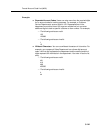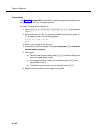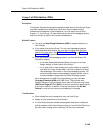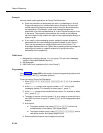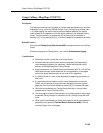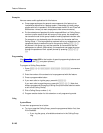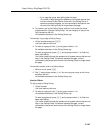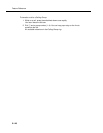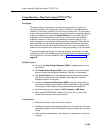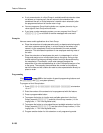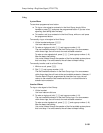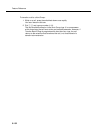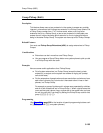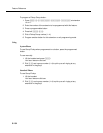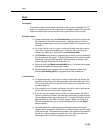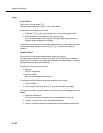
Group Hunting—Ring/Voice Signal (I77G/I*77G)
5-149
Group Hunting—Ring/Voice Signal (I77G/I*77G)
Description
This feature lets you distribute call volume among extensions in a group, to
off-load call activity from a single user. When an intercom or transferred call is
placed to a Hunt Group (where
G
is a Hunt Group number from 1–8), the system
rings or voice signals the first available (non-busy) extension in the group, passing
over busy extensions (or those with Do Not Disturb on) in a circular hunt. If a
ringing call is not answered within three rings, it moves to the next available
extension, and so on, until the call is answered or the caller hangs up. For a
voice-signaled call, only the first available extension is signaled; if that extension
does not answer, the call does not keep hunting. After an extension receives a
Hunt Group call, the next call to the Hunt Group will not ring or voice signal that
extension first unless all other extensions in the group are busy or do not answer.
The system supports up to eight Hunt Groups; however, Hunt Group 7 is used
exclusively for the voice messaging system and Hunt Group 8 is used exclusively
for fax machines. For more information, refer to ‘‘Voice Messaging Systems’’ on
page 4-28.
Related Features
■ You must use Hunt Group Extensions (#505) to assign extensions to a
Hunt Group.
■ Set Transfer Return Rings (#105) to four or greater, to ensure that calls
continue hunting to other group extensions if the call is not answered.
■ Use Do Not Disturb if you are assigned to a Hunt Group and you leave
your desk, so that a call to your extension moves directly to the next
available extension in the group.
■ You can use Group Call Distribution (#206) to assign outside lines to a
Hunt Group. Doing so allows outside calls on those lines to route directly
into that Hunt Group instead of being transferred by the receptionist.
■ Hunt Group calls are not eligible for Call Coverage or VMS Cover.
■ When using PARTNER MAIL Release 3 or later, a call to a busy Hunt
Group can be sent to a Hunt Group mailbox.
Considerations
■ Extensions can be in more than one Hunt Group.
■ Outside calls can be answered and transferred to a Hunt Group. The voice
messaging system and the auto attendant also can transfer calls to a Hunt
Group.
■ Calls cannot be transferred to a Hunt Group if all extensions in that group
are busy.



